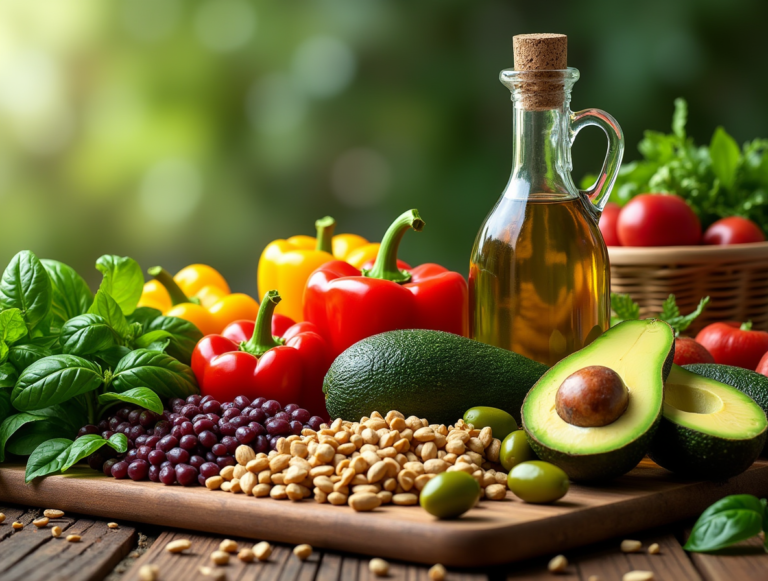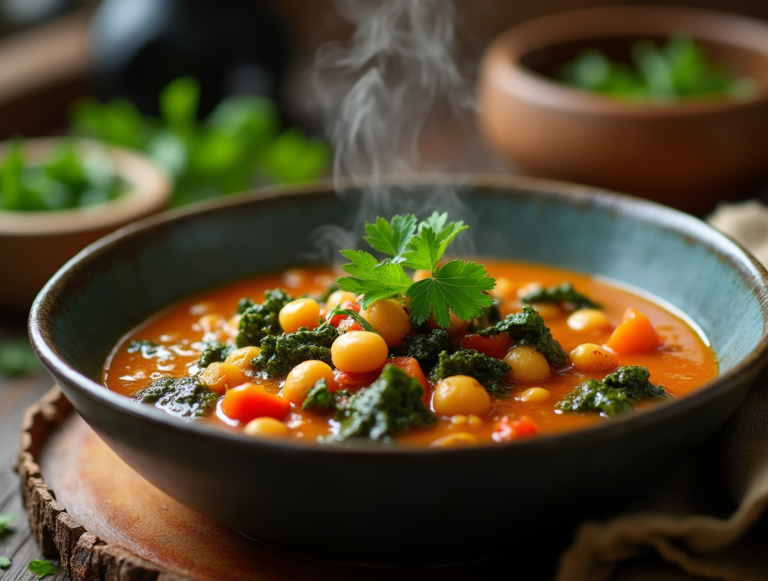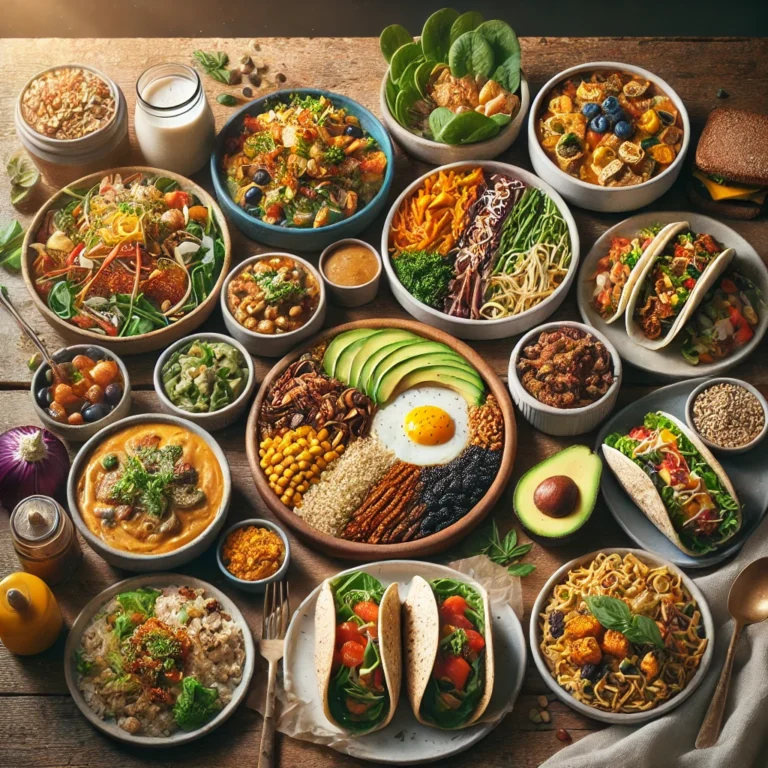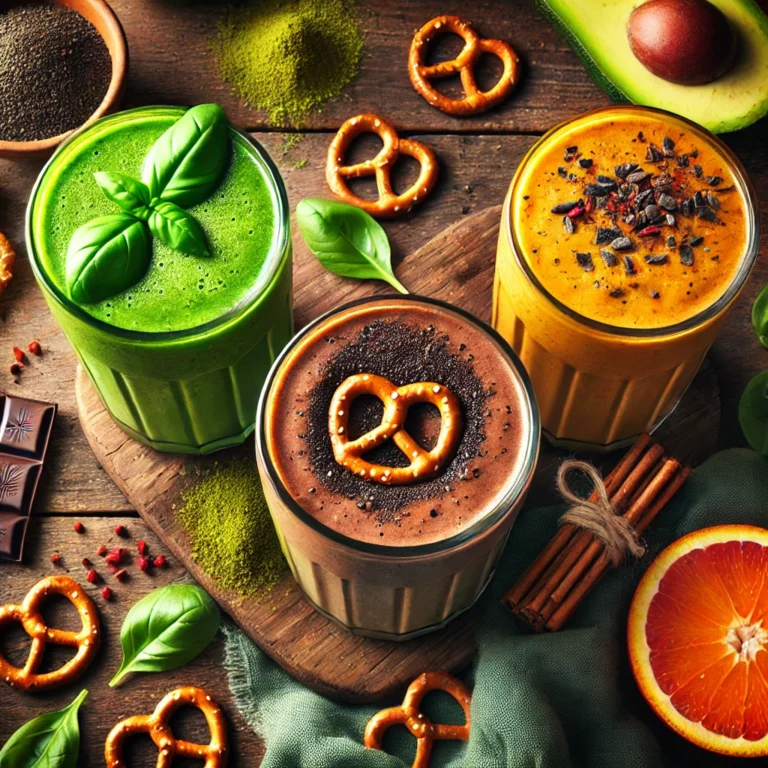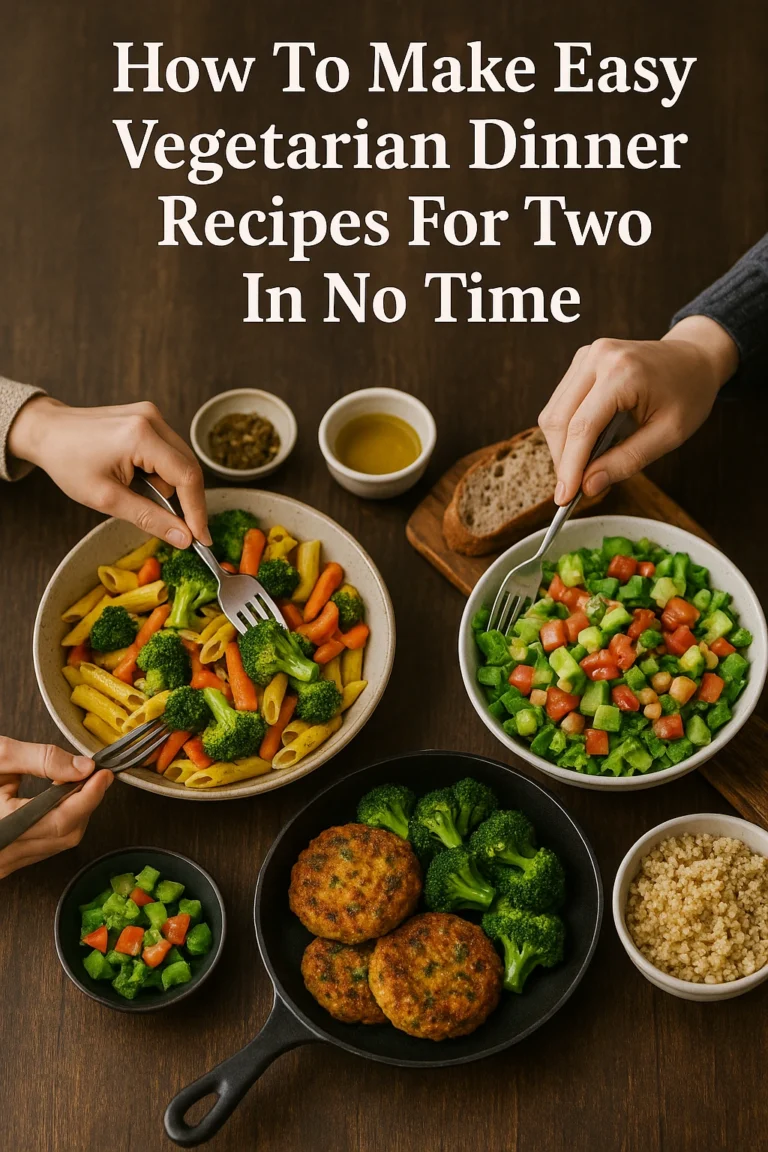Healthy Spicy Recipes: Spicy Secrets for a Longer, Healthier Life
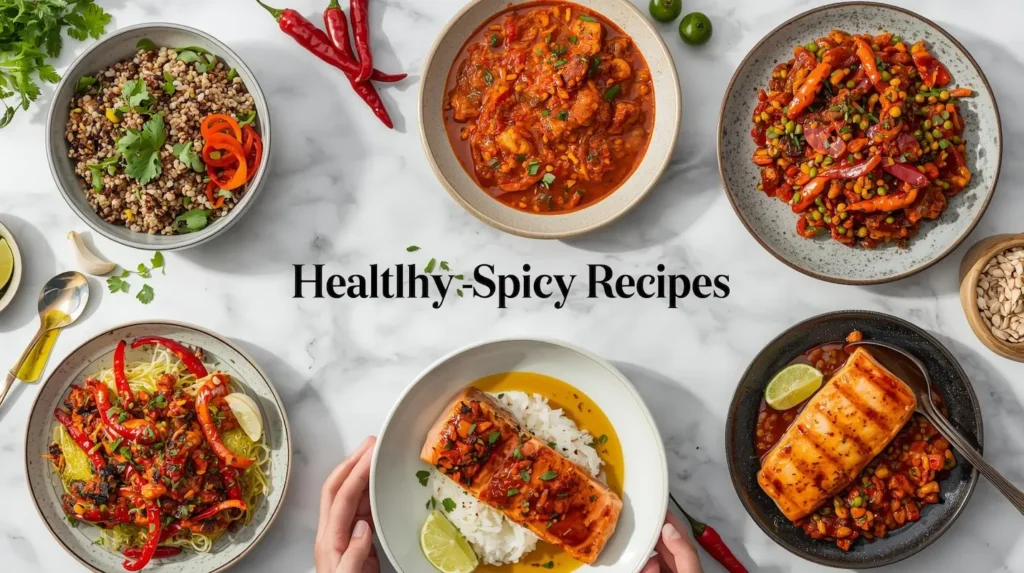
Table of Contents
Introduction
HealthyFam—where quick meets nourishing!
“Every pinch of spice tells a story — of warmth, energy, and the fire that keeps us alive.”
Could Your Favorite Fiery Foods Add Years to Your Life?
Did you know your love for heat might actually help you live longer?
Recent studies involving over half a million people reveal that those who regularly enjoy spicy foods have a 13–14% lower risk of premature death—all thanks to compounds like capsaicin, the fiery element in chili peppers.
But here’s the real secret: spicy food isn’t just about thrill—it’s a natural health enhancer. From improving heart health and boosting metabolism to reducing your need for salt, a little heat can transform not only your meals but also your well-being.
In today’s post, we’re exploring the most delicious and science-backed healthy spicy recipes—from Mediterranean quinoa bowls to Szechuan stir-fries—that ignite your senses and support longevity.
So grab your chili flakes, drizzle some olive oil, and let’s add flavor that heals, not harms.
The culinary world is rich with diverse flavors, and among them, spicy dishes hold a special place for their invigorating kick and potential health benefits. Far beyond just adding heat, chili peppers and their active compound, capsaicin, are increasingly recognized for their contributions to a longer, healthier life. From ancient remedies to modern scientific studies, the evidence is mounting: embracing the spice can be a powerful step towards improved well-being.
The Science Behind Healthy Spicy Recipes:
A massive study involving half a million people in China revealed a striking truth—those who ate spicy foods regularly had a 14% lower risk of premature death. That could mean adding an extra year to your life!
Even more impressive? A similar study in the United States found nearly the same result—a 13% reduction in early mortality among regular spice lovers.
So what’s the secret?
Spices like chili, cayenne, and jalapeño contain capsaicin. This powerful compound doesn’t just ignite your tongue—it also hacks your brain to make foods taste saltier, helping you eat less sodium and protect your heart.
These aren’t small-scale experiments. We’re talking about some of the largest nutritional studies ever conducted, and they all point to the same conclusion: spice saves lives.
What Makes Capsaicin So Powerful?
Capsaicin isn’t just responsible for that satisfying burn—it’s a legitimate health powerhouse. Here’s what it does inside your body:
1. Hacks Your Brain to Cut Salt Intake
Capsaicin makes foods taste saltier without adding sodium. Your brain perceives more flavor, so you naturally consume less salt—protecting your heart in the process. It’s like a flavor cheat code for better health.
2. Fights Inflammation Like a Natural Medicine
Chronic inflammation is the silent killer behind heart disease, diabetes, and cancer. Capsaicin acts as a powerful anti-inflammatory agent, helping your body fight disease from the inside out.
3. Boosts Your Metabolism While You Eat
Ever broken a sweat from spicy food? That’s thermogenesis in action—your body literally burning more calories to process the heat. It’s one of the most delicious ways to support weight management.
4. Protects Your Heart
Regular chili pepper consumption has been linked to:
- Lower blood pressure
- Improved circulation
- Reduced cholesterol levels
- Decreased risk of heart disease
5. Acts as an Antioxidant Powerhouse
Capsaicin combats oxidative stress, slowing cellular damage and biological aging. Think of it as giving your cells a protective shield against time.
6. May Help Prevent Cancer
Emerging research suggests that capsaicin’s ability to reduce inflammation and oxidative stress may lower the risk of certain cancers—though more research is needed.
Capsaicin’s Multifaceted Health Benefits
Capsaicin’s influence extends across multiple biological systems. It’s recognized for its:
- Antioxidant Properties: Capsaicin acts as an antioxidant, combating oxidative stress within the body. This process is crucial in slowing down cellular damage and biological aging, particularly in organs like the kidneys.
- Anti-inflammatory Effects: Chronic inflammation is a known precursor to many chronic diseases. Capsaicin has demonstrated anti-inflammatory capabilities, which can contribute to a reduced risk of various ailments and support overall immune function.
- Metabolism Boosting: One of the most celebrated aspects of capsaicin is its ability to stimulate thermogenesis, increasing the body’s energy expenditure and promoting fat burning. This “spicy metabolism booster” effect can be a valuable aid in weight management.
- Cardiovascular Health Support: Studies indicate that consuming chili peppers can lead to improved circulation, lower blood pressure, and reduced cholesterol levels. These factors collectively contribute to enhanced “spicy foods and heart health,” significantly lowering the risk of cardiac diseases.
- Cancer Prevention Potential: Emerging research suggests a link between regular chili pepper consumption and a reduced risk of certain cancers. Capsaicin’s ability to reduce inflammation and oxidative stress may play a role in this protective effect.
The Longevity Link: A Deeper Dive
Several large-scale observational studies have established a compelling association between frequent spicy food consumption and reduced mortality rates. Individuals who regularly incorporate chili peppers into their diet often exhibit a lower risk of death from all causes, as well as from specific conditions like cardiovascular diseases and cancer. While these studies highlight associations rather than direct causation, the consistency of findings across diverse populations is noteworthy. The “capsaicin longevity” effect is theorized to stem from the compound’s broad-spectrum protective actions against chronic diseases that typically shorten lifespan.
 Food for Thought
Food for Thought
“When flavor becomes medicine, every meal becomes a miracle.”
Culinary Explorations: Healthy Spicy Recipes for Every Palate
Integrating spicy foods into your diet doesn’t mean sacrificing flavor or adhering to a single cuisine. The beauty of chili peppers lies in their versatility, allowing them to enhance a wide array of dishes from different culinary traditions. Here are some “spicy healthy recipes” that showcase how to combine taste with the beneficial properties of chili peppers.
Mediterranean Inspirations
1. Spicy Mediterranean Quinoa Bowl
This vibrant, plant-forward bowl perfectly encapsulates the essence of “spicy Mediterranean recipes.” It combines the complete protein of quinoa with a medley of fresh vegetables and a spicy kick from harissa paste or crushed red chili flakes. This dish is rich in fiber and antioxidants, supporting gut health and offering a “low-sodium spicy meal” option.

A visually appealing Spicy Red Quinoa Salad, demonstrating a healthy and flavorful meal.
Grilled Delights for Global Tastes
2. Fiery Garlic-Lime Grilled Chicken
A universally appealing dish, this “Fiery Garlic-Lime Grilled Chicken” is perfect for barbecues in the US, UK, or Australia. Marinated in olive oil, lime juice, garlic, and crushed red pepper, this lean protein option delivers a “spicy metabolism booster” while being naturally low in sodium. The capsaicin aids fat burning and promotes heart-protective circulation.

Asian Fusion for Rapid Flavor
3. Szechuan Veggie Stir-Fry
For those who love bold and quick meals, a “Szechuan Veggie Stir-Fry” is an excellent choice. Crisp broccoli, carrots, and tofu are tossed in a hot Szechuan chili sauce, creating a deeply satisfying dish that is vegan-friendly and packed with nutrients. This stir-fry demonstrates how “low-sodium spicy meals” can still be incredibly flavorful and contribute to cardiovascular health by fighting oxidative stress.
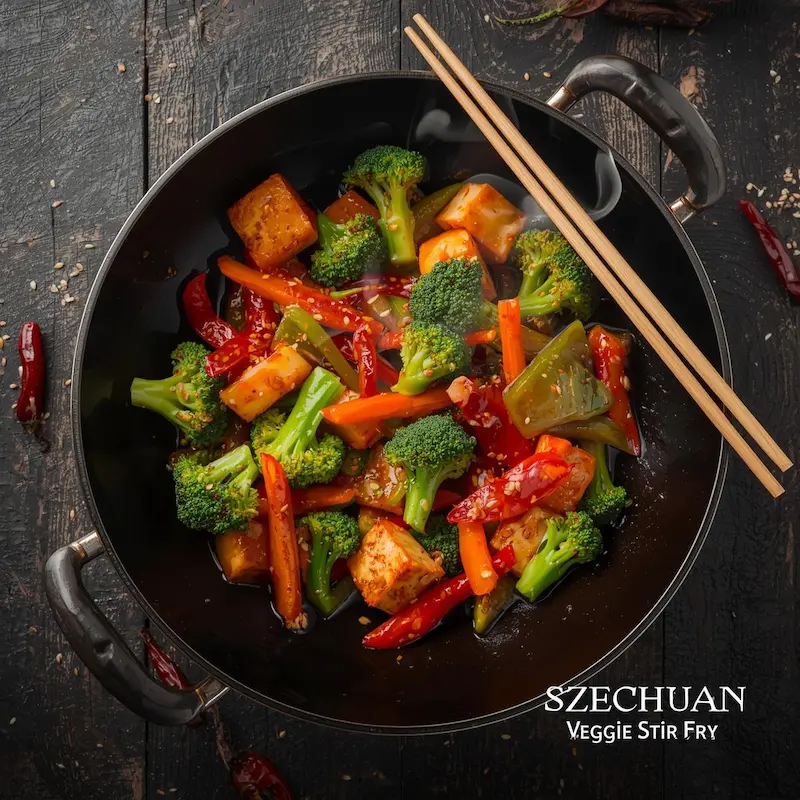
Comforting and Hearty Options
4. Smoky Chili Lentil Soup
This hearty and comforting soup brings together the “health benefits of chili peppers” in a warm, satisfying bowl. With smoked paprika and chipotle, it offers depth without heaviness. Lentils provide ample fiber, and the chili peppers boost metabolism and heart health by helping to lower bad cholesterol and aiding digestion.
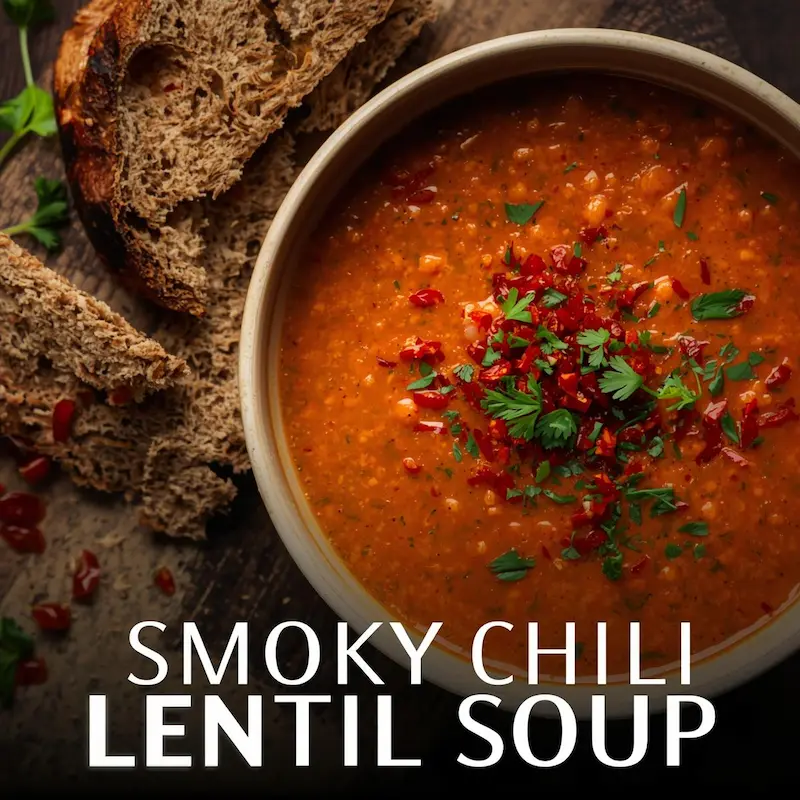
Seafood with a Kick
5. Hot Honey and Chili Glazed Salmon
Combining the omega-3 richness of salmon with a sweet and spicy glaze, this dish is a testament to how delicious “spicy foods and heart health” can be. The honey and chili glaze, featuring chili flakes, offers an anti-aging effect on metabolic health, contributing to “capsaicin longevity” and reducing cardiac mortality risk.
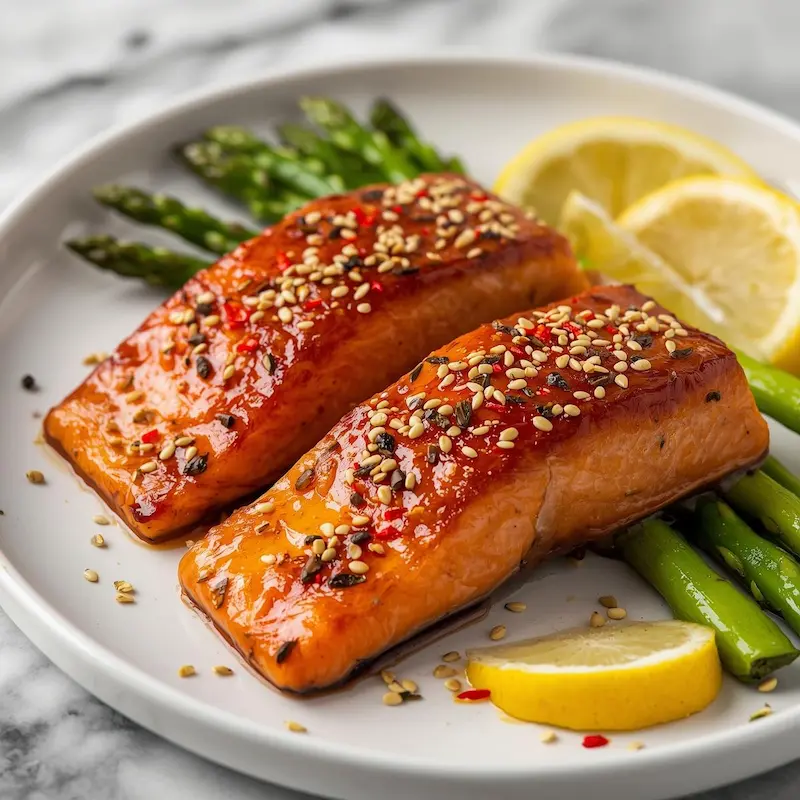
A Spicy Start to Your Day
6. Cayenne Chocolate Overnight Oat Bran
Who says spice can’t be part of breakfast or a healthy dessert? This unique “Cayenne Chocolate Overnight Oat Bran” combines the subtle heat of cayenne pepper with the antioxidant power of cocoa. It serves as a “spicy metabolism booster,” enhancing satiety and supporting kidney health, making it an ideal choice for sweet-toothed longevity seekers.
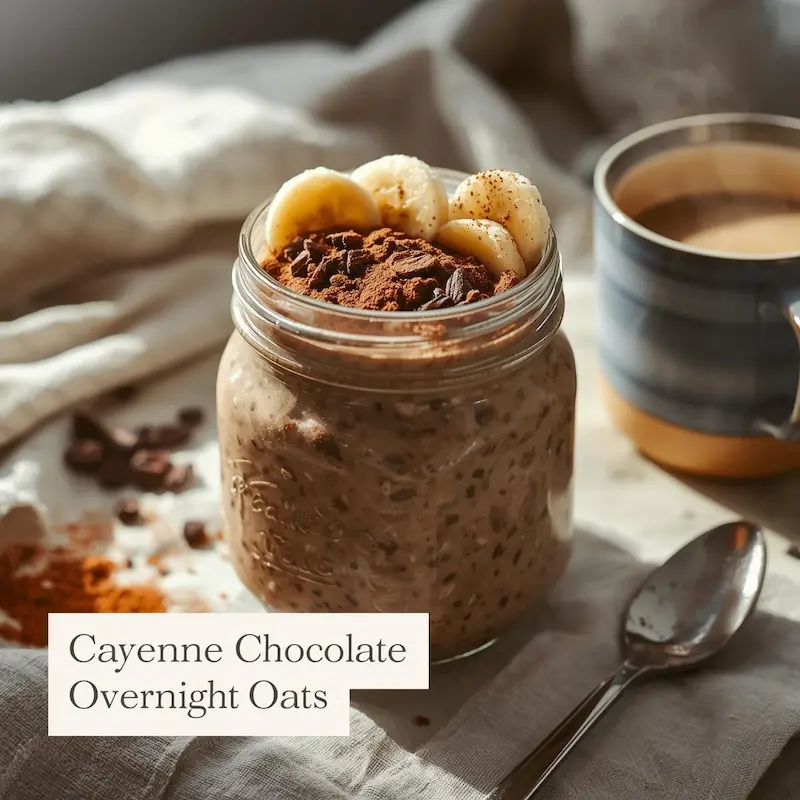
 If You Keep Eating These Healthy Spicy Recipes for One Year…
If You Keep Eating These Healthy Spicy Recipes for One Year…
Your heart, metabolism, and immune system may experience a significant improvement. The body learns to thrive with improved circulation, reduced inflammation, and balanced sodium levels.
Comparing Spicy Ingredients: A Health Perspective
While capsaicin is the star, different spicy ingredients offer varied nutritional profiles and health benefits. Understanding these distinctions can help in making informed dietary choices.
| Ingredient | Key Active Compound | Primary Health Benefits | Culinary Applications |
|---|---|---|---|
| Chili Peppers (Capsicum) | Capsaicin | Metabolism boost, anti-inflammatory, antioxidant, cardiovascular health, longevity | Antimicrobial, respiratory relief, and potential anti-cancer properties |
| Ginger | Gingerol | Anti-inflammatory, anti-nausea, digestive aid, pain relief | Teas, stir-fries, baked goods, soups |
| Turmeric | Curcumin | Powerful anti-inflammatory, antioxidant, supports brain health | Curries, golden milk, stews |
| Black Pepper | Piperine | Antimicrobial, respiratory relief, and potential anti-cancer properties | Almost all savory dishes |
| Horseradish | Isothiocyanates | Antimicrobial, respiratory relief, potential anti-cancer properties | Sauces, roasts, sushi |
An overview of common spicy ingredients and their associated health benefits and culinary uses.
From Kitchen to Longevity: Making Spice Work for You
“When flavor becomes medicine, every meal becomes a miracle.”
The beauty of incorporating spicy foods into your diet? You’re not limited to one cuisine or one type of dish. From Mediterranean bowls to Asian stir-fries, from Mexican salsas to Indian curries—every culture has discovered the power of heat.
The HealthyFam Approach: Quick Meets Nourishing
At HealthyFam, we believe healthy eating should be:
 Fast enough for busy weeknights
Fast enough for busy weeknights Flavorful enough to satisfy your cravings
Flavorful enough to satisfy your cravings Nutritious enough to fuel your best life
Nutritious enough to fuel your best life
And when you add spice to the equation? You get meals that don’t just taste incredible—they actively work to keep you healthier, longer.
Pro Tips for Spicy Success
- Start Slow: If you’re new to spice, begin with milder peppers like poblanos and work your way up
- Balance the Heat: Pair spicy elements with cooling ingredients like yogurt, avocado, or coconut milk
- Use Fresh AND Dried: Fresh chilies offer brightness; dried ones provide depth
- Don’t Forget the Fat: Capsaicin is fat-soluble, so a little olive oil or avocado helps your body absorb all those benefits
- Listen to Your Body: Everyone’s tolerance is different—find your sweet spot
The Bottom Line: Your Health Is Worth the Heat
Let’s recap why spicy foods deserve a permanent spot on your plate:
 13-14% reduced risk of premature death
13-14% reduced risk of premature death Natural metabolism booster
Natural metabolism booster Heart health protector
Heart health protector Inflammation fighter
Inflammation fighter Helps you eat less salt
Helps you eat less salt Makes healthy food taste amazing
Makes healthy food taste amazing
The research is clear: adding a little heat to your meals isn’t just about excitement—it’s about longevity, vitality, and enjoying every single bite along the way.
 Ready to Spice Up Your Life?
Ready to Spice Up Your Life?
So grab your chili flakes, drizzle some olive oil, and let’s add flavor that heals, not harms.
Your challenge: Try adding one spicy element to your meals this week. It could be a pinch of cayenne in your morning eggs, jalapeños on your sandwich, or a full-blown spicy recipe from scratch.
Then come back and tell us: What’s your favorite way to bring the heat?
Drop a comment below, share this post with a fellow spice lover, and let’s build a community that lives longer and tastes better—one fiery meal at a time.
Frequently Asked Questions About Healthy Spicy Recipes:
What is capsaicin, and how does it benefit health?
Capsaicin is the active compound found in chili peppers that gives them their heat. It’s known for its antioxidant, anti-inflammatory, and metabolism-boosting properties, contributing to improved cardiovascular health, reduced risk of chronic diseases, and potentially a longer lifespan.
Can spicy foods help with weight loss?
Yes, capsaicin in spicy foods can act as a “spicy metabolism booster” by increasing thermogenesis, which helps the body burn more calories and fat. It can also enhance satiety, potentially leading to reduced food intake.
Are there any downsides to eating spicy foods regularly?
For most people, regular consumption of spicy foods is safe and beneficial. However, individuals with certain conditions like irritable bowel syndrome (IBS), gastritis, or ulcers might experience discomfort. It’s always best to listen to your body and moderate intake if necessary.
How can I incorporate more spicy foods into a low-sodium diet?
Chili peppers and other spices are excellent for adding flavor without relying on salt. Many “low-sodium spicy meals” can be created by using fresh herbs, garlic, lime, and chili in place of excessive sodium. The recipes provided in this article offer great examples.
Do spicy foods truly contribute to longevity?
Observational studies have shown a consistent association between regular spicy food consumption, particularly chili peppers, and a reduced risk of all-cause mortality, cardiovascular disease, and cancer, suggesting a potential contribution to “capsaicin longevity.”
 If You Don’t…
If You Don’t…
You may continue relying on excess salt for flavor—a habit linked to millions of deaths annually from cardiovascular disease.
Conclusion: Embrace the Heat for a Healthier You
The journey towards a longer, healthier life can be as flavorful as it is beneficial, especially when incorporating the power of spicy foods. The evidence strongly supports the notion that chili peppers, through their active compound capsaicin, offer a myriad of health advantages, from boosting metabolism and protecting the heart to fighting inflammation and potentially extending lifespan. By exploring diverse “spicy healthy recipes” from around the world, individuals can easily integrate these potent ingredients into their daily diets, enjoying both the exciting flavors and profound “chili pepper diet benefits.” So, next time you’re preparing a meal, consider adding a dash of heat – it might just be the secret ingredient to a more vibrant and enduring life.
Don’t just add spice—embrace it. From chili flakes on your soup to cayenne in your smoothie, every spark of heat can light the way to a healthier, longer life.
At HealthyFam, quick meets nourishing—and delicious meets longevity. Ready for more recipes that love you back? Subscribe to never miss a health-boosting meal idea!
 Pin this post |
Pin this post |  Share your spicy stories |
Share your spicy stories |  Get weekly recipes in your inbox
Get weekly recipes in your inbox
HealthyFam Recipes—where every meal tells a story of vitality.
Recommended Further Reading
- The science behind capsaicin’s anti-inflammatory effects
- Global culinary traditions and spicy ingredients
- Impact of spicy foods on gut microbiome
- Balancing spice levels for optimal health benefits
Referenced Search Results
health.harvard.edu
Spicy foods associated with longer life, Harvard researchers find – Harvard Health
health.harvard.edu
Chili peppers: The spice of a longer life – Harvard Health
drfranklipman.com
Health Coach Tip: The Benefits of Capsaicin – Dr. Frank Lipman
wmmc.com
Chili Peppers: The Superfood – WMMC
health.harvard.edu
Will eating more chili help you live longer? – Harvard Health Blog
draxe.com
Chili Pepper Benefits, Nutrition, Types & Recipes – Dr. Axe
ispicefoods.com
Chili Pepper: The Fiery Spice That Ignites Flavor and Health Benefits – iSpice Foods
naaginsauce.com
Healthy Meal Ideas for Spicy Food Lovers – Naagin Sauce
instituteforfunctionalhealth.com
Are Chili Peppers The Secret Ingredient To Longevity? – Institute for Functional Health
bmj.com
thelemonbowl.com
50+ Healthy Spicy Recipes For Food Lovers – The Lemon Bowl®
pepperhead.com
10 Amazing Health Benefits to Eating Hot Peppers [Scientifically …
pubmed.ncbi.nlm.nih.gov
Association of Spicy Chilli Food Consumption With Cardiovascular …
pinterest.com
29 Best Spicy Dinner Recipes ideas
allrecipes.com
Our Favorite Sweet and Spicy Dinner Recipes
countsofthenetherworld.com
bbcgoodfood.com
Spicy vegetarian recipes | Good Food
searchingforspice.com
Easy Healthy Recipes with a Touch of Spice – Searching for Spice
reddit.com
r/cookingforbeginners on Reddit: What’s spicy, healthy, and easy to cook?
bbc.co.uk
bbcgoodfood.com
Spicy chicken recipes | Good Food
skinnyms.com
Healthy Spicy Food for Weight Loss: 21 Recipes to Try if You Love Spicy Food
vismaifood.com
scripps.org
Can Spicy Foods Lower Blood Pressure? – Scripps Health
aglab.ars.usda.gov
Hot News About the Health Benefits of Chilis | AgLab
herbalgram.org
New Research Bolsters Evidence of Hot Chili Peppers’ Health Benefits
searchingforspice.com
Easy Spicy Recipes for Midweek Meals – Searching for Spice
chillichump.com
20 Spicy Dinner Ideas-Try These Family-Friendly Hot Recipes
cardahealth.com
8 Foods To Avoid Eating Frequently if You Have Heart Palpitations
bonappetit.com
47 Spicy Recipes to Make You Sweat | Bon Appétit
drsumaiya.com
Comprehensive Guide To Chili Peppers: Nutritional Value And Health …
crecipe.com
Spicy citrus chicken wings recipe photos
foodnetwork.com
50 Spicy Recipes & Ideas | Spicy Food To Make at Home | Food Network
pinterest.com
Discover 100 Spicy Food and Quick Recipes Ideas
newsroom.heart.org
People who eat chili pepper may live longer.
vismaifood.com
eatingwell.com
What Happens to Your Body When You Eat Spicy Food – EatingWell
veggievibesandvines.com
health.osu.edu
Can eating spicy food harm your health?
reddit.com
r/EatCheapAndHealthy on Reddit: Anything for a spicy food lover?
delish.com
Easy Spicy Dinner Recipes – Best Spicy Dinner Ideas
bmcpublichealth.biomedcentral.com
Association between spicy foods consumption and cardiovascular …
pmc.ncbi.nlm.nih.gov
Dietary Capsaicin: A Spicy Way to Improve Cardio-Metabolic Health?
vismaifood.com
vismaifood.com
hellospoonful.com
Spicy Baked Chicken – Healthy Firecracker Chicken Recipe
pmc.ncbi.nlm.nih.gov
Spicy Food and Chili Peppers and Multiple Health Outcomes – NIH
shop.healthyoptions.com.ph
10 Surprising Health Benefits of Chili Pepper – Healthy Options
hedihearts.com
Healthy Snacks Recipes Archives
reddit.com
r/HotPeppers on Reddit: Health benefits of chili’s
health.clevelandclinic.org
Is Spicy Food Good for You? – Cleveland Clinic Health Essentials
pinterest.com
Healthy Spicy Food for Weight Loss: 21 Recipes to Try if …
tasteofhome.com
40 Spicy Recipes That’ll Blow Your Top
vismaifood.com
nutritionj.biomedcentral.com
Spicy food consumption and biological aging across multiple organs…
foodymania.com
spicestationsilverlake.com
Five Surprising Health Benefits of Chili Peppers – Spice Station
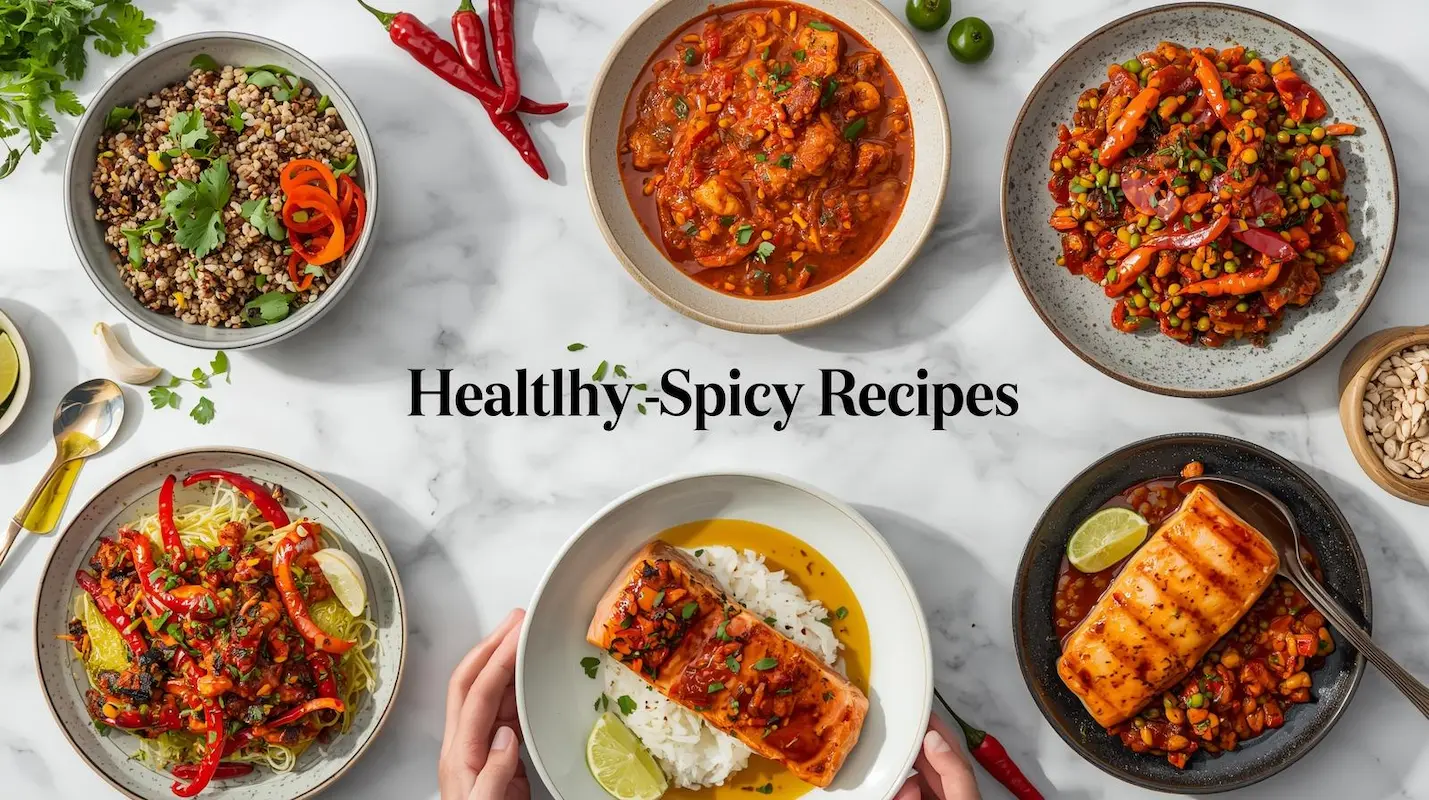
 If You Keep Eating These Healthy Spicy Recipes for One Year…
If You Keep Eating These Healthy Spicy Recipes for One Year… Fast enough for busy weeknights
Fast enough for busy weeknights Ready to Spice Up Your Life?
Ready to Spice Up Your Life? If You Don’t…
If You Don’t…